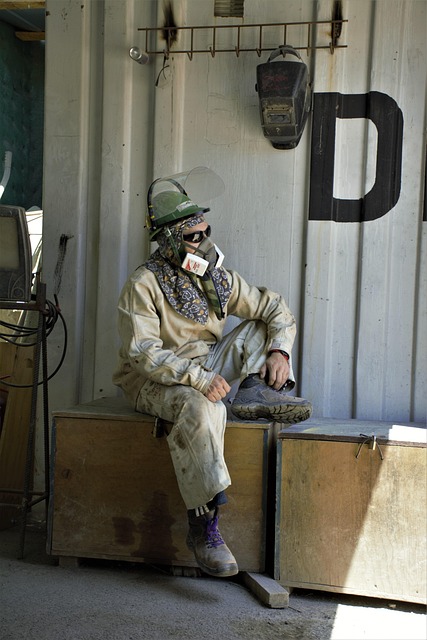Explore aviation training programs across Denmark
Residents of Denmark have the opportunity to pursue a rewarding career in the aviation industry through specialized training programs. These programs provide participants with the essential knowledge and skills needed to fulfill various roles in the aviation industry. With numerous training options available in various cities, aspiring aviation professionals can begin their journey toward a successful career.

Denmark’s aviation training landscape offers numerous pathways for those passionate about careers in the skies. From commercial pilot training to aircraft maintenance engineering, the country hosts several specialized institutions that deliver high-quality education aligned with international aviation standards. Whether you’re looking to become a pilot, aircraft technician, or air traffic controller, Danish aviation programs provide the knowledge, skills, and certifications needed to launch a successful career in this dynamic industry.
What Aviation Training Programs Are Available in Denmark?
Denmark features a comprehensive selection of aviation training programs across multiple specializations. The Center Air Pilot Academy in Roskilde offers integrated and modular ATPL (Airline Transport Pilot License) courses, while the Danish Aviation Academy specializes in aircraft maintenance training. For those interested in air traffic management, Naviair’s training center provides specialized courses for air traffic controllers. Technical schools like TEC (Technical Education Copenhagen) offer aircraft mechanic programs with strong industry connections. Additionally, helicopter pilot training is available through specialized flight schools like Bel Air Training. These institutions maintain close relationships with airlines and aviation companies, ensuring their curricula remain relevant to industry needs.
Opportunities in the Aviation Industry for Emerging Professionals
The Danish aviation industry presents diverse career paths for newly qualified professionals. Major employers include Scandinavian Airlines (SAS), which frequently recruits pilots, cabin crew, and maintenance personnel. Copenhagen Airport, one of Northern Europe’s busiest hubs, employs professionals across various aviation disciplines. Regional airlines like DAT (Danish Air Transport) offer opportunities for pilots to accumulate flight hours. The maintenance sector is bolstered by companies like Scandinavian Aircraft Services and Maersk Aviation, which regularly seek certified technicians. Denmark’s strategic location also makes it an attractive base for international airlines operating in the Nordic region, creating additional employment opportunities for aviation graduates. The country’s strong focus on green aviation initiatives is also generating new specialized roles in sustainable aviation technology.
Essential Skills for a Successful Career in Aviation
Beyond technical knowledge, successful aviation professionals must develop a comprehensive skill set. Impeccable attention to detail and strict adherence to safety protocols are non-negotiable in this high-stakes industry. Strong analytical thinking and problem-solving abilities are crucial for pilots making split-second decisions and maintenance technicians diagnosing complex aircraft systems. Communication skills are vital across all aviation roles, particularly for pilots and air traffic controllers who must convey critical information clearly and concisely. Stress management and the ability to remain calm under pressure are equally important. Additionally, as aviation becomes increasingly international, proficiency in English—the universal language of aviation—is essential. Danish aviation training programs emphasize these competencies alongside technical training to produce well-rounded professionals ready for global careers.
Training Requirements and Certification Standards
Aviation training in Denmark adheres to rigorous European Union Aviation Safety Agency (EASA) standards. For pilot training, students must complete theoretical knowledge instruction covering subjects like aerodynamics, navigation, and meteorology, followed by extensive flight training. Commercial pilot licenses typically require 200+ flight hours. Aircraft maintenance technicians must complete EASA Part-66 approved training, combining classroom instruction with hands-on practical experience. Air traffic controller candidates undergo intensive selection processes before entering specialized training programs lasting approximately two years. Most aviation programs require candidates to pass medical examinations and, for pilot training, aptitude assessments. These stringent requirements ensure Danish aviation graduates meet international standards and can work anywhere in Europe or globally with minimal additional certification.
Financial Considerations for Aviation Training
Aviation training represents a significant investment, with costs varying considerably across different programs and specializations. Prospective students should carefully consider the financial implications before embarking on their aviation journey.
| Training Program | Provider | Approximate Cost (DKK) |
|---|---|---|
| Integrated ATPL (Commercial Pilot) | Center Air Pilot Academy | 700,000 - 850,000 |
| Modular ATPL | Danish Flight Academy | 500,000 - 650,000 |
| Aircraft Maintenance (B1/B2) | Danish Aviation Academy | 250,000 - 350,000 |
| Air Traffic Controller Training | Entry Point North | Sponsored by Naviair |
| Flight Instructor Rating | Billund Air Center | 80,000 - 100,000 |
Prices, rates, or cost estimates mentioned in this article are based on the latest available information but may change over time. Independent research is advised before making financial decisions.
Some institutions offer payment plans or collaborate with financial institutions for student loans. Additionally, certain airlines operate cadet programs that partially sponsor training in exchange for employment commitments. International students should note that fees may differ from those applicable to Danish or EU residents.
Advanced Specialization and Continuing Education
The aviation industry demands continuous learning and specialization throughout one’s career. Danish aviation institutions offer numerous advanced training options for professionals looking to enhance their qualifications. Pilots can pursue type ratings for specific aircraft models, instrument ratings for flying in challenging conditions, or instructor certifications to train the next generation of aviators. Maintenance technicians can specialize in particular aircraft systems like avionics, engines, or composite structures. Air traffic controllers can advance to managing more complex airspaces or training roles. Many institutions also offer management courses specifically tailored to aviation professionals transitioning to leadership positions. These continuing education options ensure aviation professionals can adapt to technological advancements and regulatory changes throughout their careers while creating pathways for career progression and specialization.
Denmark’s aviation training ecosystem provides comprehensive education and certification pathways for various aviation careers. With strong connections to the industry, adherence to international standards, and a focus on both technical and soft skills, these programs equip students with the qualifications needed to thrive in global aviation. While the financial investment is substantial, particularly for pilot training, the resulting career opportunities span numerous sectors within the dynamic and evolving aviation industry. As air travel continues to grow and modernize, Danish aviation graduates are well-positioned to contribute to this essential global industry.




